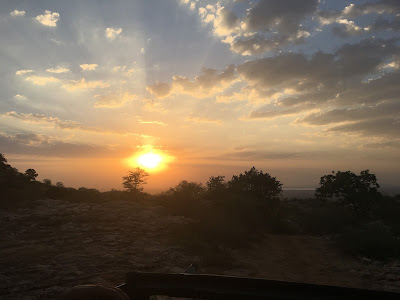Groups.
It’s not a natural fit for me.
And to be fair, groups don’t want me
either.
Inappropriate comments, unnecessary
questions, bad jokes, low rumblings of alternative thought, marmalade and
cheese…you know how it goes.
So here I am, with a group traveling around
Burma.
I had made a decision that to try and
attempt to land at Yangon airport with just a guide book and a load of Khat,
would leave me soggy of spirit, resolve and face.
 |
| Yangon in the last shout the monsoon |
Recommended by a friend who had gone to
India with a group, I bought a 14 day trip called Classic Myanmar from a
company called “ Intrepid.”
I met my little group on the first evening
at The Summit Parkview Hotel by the People’s Park in Yangon.
I had already ascertained that I had been
booked into a hotel that had conventions. And that I didn’t like the carpet. Or
the view from my window. And that the girl behind the reception counter was a
bit of a cow. And that even though the guide books told me to bring US dollars
( fresh, flat and unused; and not printed
after 2006)
Nobody took US dollars outside of the
Convention Hotels and maybe an up market restaurant or two. So that when I went
downtown to the Colonial District on my first afternoon, I couldn’t buy
anything with my crisp greenbacks, not a samosa, not a taxi, not an umbrella.
I returned to the Summit Parkview, drenched
to the skin and had to ask a taxi driver to wait whilst the cow behind the
reception desk told me where to find a cubicle that I could change my brand new
dollars into Kyat so I could pay him the three dollars it cost to get from the
old customs House by the docks back to bad carpet land.
 |
| kyat. |
To be clear here:
50 kyats = 5 cents
200 kyats = 20 cents
2000 kyats = 2 dollars
Our meeting was listed on the convention
board as happening in the fine dining area.
I asked the woman at the reception where
that was, she said it was in the café. I just followed the corridor of bad
carpet to a room painted tan and maroon where a smiling face with a badge
hanging round her neck and a yellow and lime green traditional outfit said “
Intrepid?” I almost said “ No, not all. Playing it safe for now…” but I sat
down with my group and behaved for five minutes.
They were two young Australians. Three
people who originally came from England but were now Australians. One man from Canada
and a lady from Surrey. We all said hallo. I was the only one who was wet.
She gave us a list of common phrases in
Myanmar, formally known as Burma. ( from now on calling it MFKAB)
Hallo ( or Auspicious to you all ) :-
Mingalar ba
Yes: - hou’ke shin
Sorry:- sel’ mashi ba ne
Thank you :- kyei:zu: tin ta be
And of course.
Where is the loo:- ein tha be ma shi.tha
le:
On the subject of loo’s; outside of the convention hotel and a few
restaurants where people from convention hotels go to eat the loo is the squat
variety with a bucket of water .
 |
| young wet nuns |
 |
| ladies in longyis |
 |
| schoolchildren in their green and white |
 |
| woman and her son and what is left of a bike that has no wheels |
And on the subject of traditional dress; I
have to say that skirts and trousers look very much the outsiders in Burma. Men
wear the pasos that are a big pillowcases open at either end that they wrap
round them selves left first then right and then knot in the middle. Normally
made out of a green or purple checked cotton. The women wear a cotton top with
buttons and long sleeves and a matching skirt, a longyi, that is a 2 metre long piece of fabric that
wraps and wraps and tucks. Shorts, I have seen just a couple of times on
foreigners. Strappy tops I have seen a couple of times, again on foreigners.
woman with brooms. taxi drivers. Business
men. Street vendors. Boat men. Families.
 |
| colonial windows |
 |
| the old British bank. downtown Yangon |
My tour guide has a mother who lives three
hours north of Yangon. Her mother makes the outfits for her.
Nobody shows their knees or their
shoulders. Just the way it is here in MFKAB.
Oh, and me and the tour group…..I’m getting
better.
I have discovered I like being led by
someone who knows where they are going .
And groups are full of people with stories
to tell of how and why they got here.
So , it’s all right :- ya ba de. And good bye:- thaw:bi.
 |
| Shwedagon Paya Pagoda, Yangon |
 |
| lady , born on a tuesday making her prayers |
 |
| monk, taking his quiet time in the early morning |













































